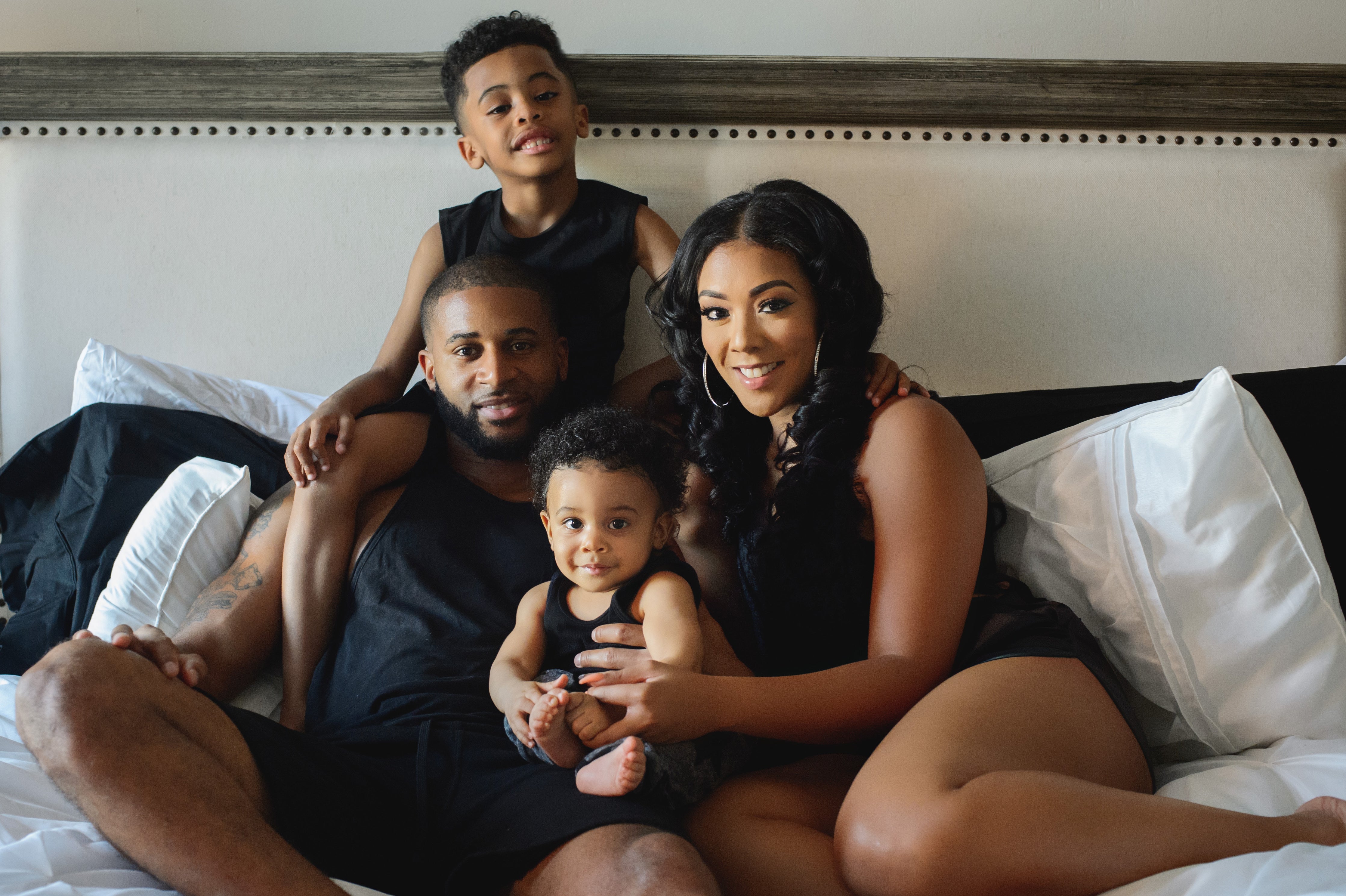
You’ve seen these delightful faces before.
They’re all over Instagram, flooding your feed with positive images of a beautiful Black family and keeping it all warm and fuzzy with their hilarious family videos.
Devoted dad Devale Ellis, 33, and his lovable family are doing it for the ‘gram, and they’re doing it so well they’re not insta-famous.
The former NFL wide receiver is known for sharing viral videos featuring real moments inside his everyday life with his beautiful wife, Kadiene Ellis, and their two adorable sons, Jackson and Kairo. After retiring from the NFL, Ellis, who studied acting in college, set off on a mission to build the type of Black family programming he wanted to see, from the bottom up. Now he and his wife are popular vloggers, #goals for loads of couples and your next family crush.
Instagrammers can’t get enough of the devoted dad, and here at the ESSENCE offices, neither can we. We check in with Ellis to find out hoe daddy
Why did you decide to share your family with the world online?
It was always kind of my plan; I’ve always been a planner. When I retired from the NFL, I always wanted to do TV and film. I started to realize there’s different ways you have to get people’s attention. You have to show them who you are. People want to know who you are, so I just decided to let people know what the most important thing is to me, and that is my family and my community. And I enjoy sharing, so that just grew. Our family grew and grew. When Jackson came, it created a different dynamic, and then when Kairo came, it created a different dynamic. And it just became part of my life. I don’t know what I would do if I didn’t have an opportunity to share.
Was this always the plan?
My goal is to get a TV show for my family. And I don’t want to do reality TV. I want to be on a sitcom. I want to be the first actor/comedian/personality that has his own family cast in his series where they’re playing themselves. That’s my goal, so I’m going to continue to put out things the way I want it to be put out, and tell our narrative, because I have a story to tell about the NFL, about drug addiction, about the plight that actors go through when they’re trying to find themselves after they retire. It’s the story I want to tell people, and I think they should hear it. I studied acting in college and my wife studied performance art in college. She has a master’s degree in speech and communications and performance. It’s not like I’m just saying we want to be TV people; we put in the work. I respect the craft of acting, so it’s not like I’m just throwing videos together. I actually studied behind the scenes too. This is my passion.
Why did you pass on going the reality TV route?
About four years ago, we were supposed to do reality TV. The people that kept approaching us wanted so much controversy and drama. I refused to do it. One of the producers said to me, “There’s not enough at stake, if you have a positive image all the time. People don’t want to see that.” And that almost broke my soul. You’re telling me the only way someone can be on TV is if they just create controversy and drama even if it’s not organic? I just said I’m not interested in doing that. They walked away, and I continue to push out my own images, and now they’re starting to grow. People seem to love the positivity. Even though there’s still a little bit of drama—my wife and I still go through it. We still beef with each other, we still argue about stuff couples argue about, but that’s normal.
What’s the biggest message you hope to relay?
The biggest message has to be about black fatherhood, because I feel like in 2017, people want to try to dismiss race as if it’s not an issue anymore. That’s not fair to people who have to go through living in America as a person of color. That bothers me. They want to say, “being black in life in 2017 is different than it was in 1960,” Yeah it may be different, but it’s not that different. Every day I walk out into the world, I’m still a Black man. All the stereotypes you hear, it seems that we’re always dehumanized. I feel like if they saw more Black men in the light of being a father, being a husband, and just being loving, it’s a lot harder to look them in the eye and say that “you’re less than human,” if you see them doing human things. This is just a different narrative of who we are as Black men. We’re fathers, we’re husbands, we’re business owners. We love our kids. We kiss our sons. We hug our sons.
Photography by Joshua Dwain
